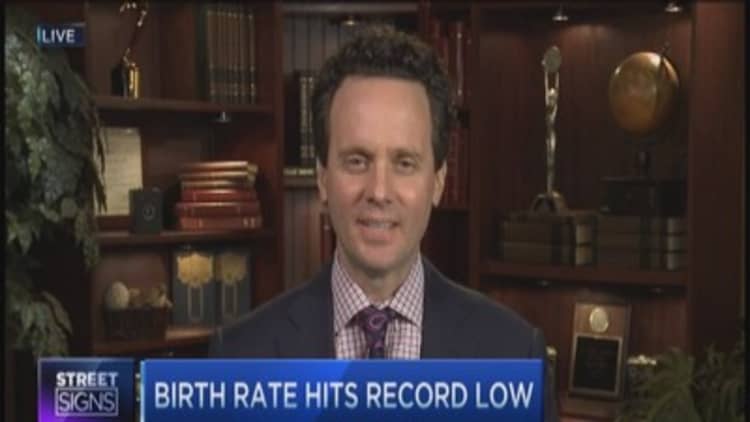Germany should offer financial incentives to encourage people to have more children and reverse ageing population trends, according to one of the country's most influential economists.
Hans-Werner Sinn, who heads Munich's influential IFO Institute, said high levels of immigration into Germany would not solve the "demographic time bomb" posed by its ageing population. Instead, politicians should boost Germany's birthrate through policies designed to make parenthood more financially appealing, he said.
"The combination of a growing number of pensioners and far fewer younger people is leading to an almost unsolvable and highly predictable generational conflict… There is no alternative (but)to increasing the birth rate," said Sinn in an IFO research note published on Tuesday.
"With more children in Germany, there would be a greater chance of preventing a gerontocracy and peacefully overcoming the looming demographic crisis," he added.
Germany has the lowest birthrate of any wealthy country in the world bar Japan, according to the Organisation for Economic Cooperation and Development (OECD). Official forecasts show Germany's population shrinking by up to 20 percent by 2060.

Sinn said that encouraging parenthood would help finance the pensions of a rising elderly population—a burden he likened to the "many uncovered bills" presented by the bailout of southern Europe following the 2007-08 financial crisis.
Notably, Sinn advocated that the German state should offer pension supplements to couples for each child they raised.
"If the basis on which pensions are calculated is changed to include a child component that would give parents a share of the results of their efforts in child rearing, the number of births would certainly increase," he said.
Sinn also advocated shortening nursery waiting lists to make parenthood more appealing. He said that an IFO study had shown that for every 100 childcare places that were created and occupied, 10 more children were born.
This month, Deutsche Bundesbank President Jens Weidmann, discussed the economic challenges posed by an ageing population in a speech in Frankfurt. So far, Germany has attempted to tackle the issue by hiking the pension age to 67—a move that proved controversial.
Read MoreWe need more babies! Seriously, this is a problem
Falling birthrates are a problem faced by many developed economies, with the trend particularly marked in neighboring Italy, as well as in Japan and South Korea.
Meanwhile, the proportion of the global population over 50-years-old is forecast by Bank of America Merrill Lynch to reach 33.5 percent by 2050, up from 17.8 percent in 2000.
Read MoreSilver economy: How to invest in an aging population

